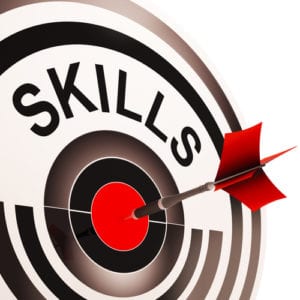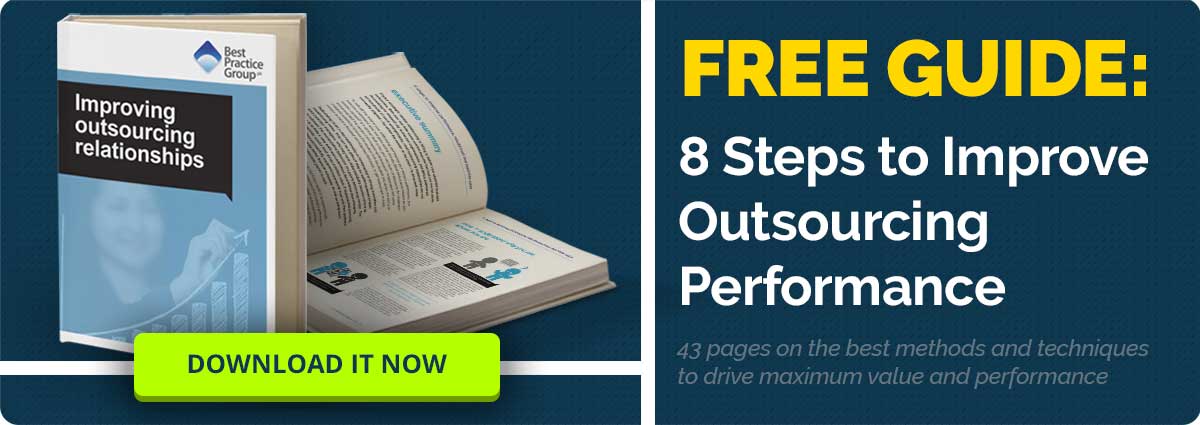 This will not come as a surprise to many out there, but complex supplier relationships are, well, complex in nature and, therefore, will naturally be difficult to manage.
This will not come as a surprise to many out there, but complex supplier relationships are, well, complex in nature and, therefore, will naturally be difficult to manage.
If you have ever been involved in a sizeable client/strategic supplier relationship that starts to veer out of control, you’ll know how difficult it can be for all parties to recover lost commercial trust and confidence. This is why it is so vitally important to create the right Intelligent Client Function teams – and/or steering groups – to manage that supplier relationship right from the inception of your partnership.
In a perfect world, your supplier’s delivery and management team would be made up of individuals with highly-evolved emotional intelligence – individuals who ‘get’ the bigger picture and strive to cultivate your relationship by assisting in the development of your organisation’s competitive position. Similarly, as the client, your internal management team, while ideally assertive and contractually diligent, would endeavour to help to make it easier for the supplier to leverage their ideas and innovations within your organisation to both cut service delivery costs and improve service levels.
In the real world, as we all know, there are often emotional, competitive and personality-led reasons why this doesn’t happen quite as planned. The smallest of misunderstandings or selfish priority shifts could conceivably spark the beginnings of a relationship breakdown. The resulting potential for defensiveness, and a lack of productivity, innovation and cooperation, can be disastrous and should be avoided where at all possible.
We know from extensive experience that productive working relationships with strategic outsourcing suppliers require good strong Intelligent Client Function teams whose role is to create, strategise, develop, focus, monitor and maintain that relationship/partnership.
The Importance of Adequate Intelligent Client Function Team Resourcing
We often see that a common misconception by senior management on the client side is that because the service has been outsourced, it should not need more than a person or two to stay on top of the contract. However, it is essential that you retain ownership of your own destiny, meaning that you can’t outsource strategy. While the responsibility for decisions ultimately stops at your door, you can of course get in external support to help you consider your strategic options.
Without a strongly resourced internal team to drive the right strategic service provider behaviour and business outcomes, and also support and facilitate them in the innovation process:
• How will you continue to keep on top of ‘what good looks like’?
• How will you be able to critically challenge the supplier’s performance and ensure they keep on top of driving maximum value and continually develop innovation in their service delivery to cut on-going costs and drive much better effectiveness for you?
• In addition, one or two unscrupulous team members that go unchecked on the supplier side can create a very unfavourable culture where others are encouraged by your inaction to try their luck at similar behaviour. Having a strong client side skill-set in your Intelligent Client Function team helps to challenge this at the very early stages of your relationship and prevents bad behaviour from manifesting itself.
How Good Teams Can Create Bad Results
Often Intelligent Client Function teams are highly technically competent, which can pose an entirely different challenge: the ability for them to focus on ‘outcome’ rather than ‘process inputs’ or ‘how’ a service is delivered. At the first sign of a service wobble, technical client-side Intelligent Client Function teams often want to jump in and tell the supplier ‘how’ to do their job. While they may well be correct in their advice, from a contractual perspective, this often undermines the client’s contractual position, not to mention the trust relationship.
It is certainly the case that sometimes technical client side teams simply don’t have the right skillset to make the transition from legacy ‘delivery’ to contract ‘management’ of a third party delivering the services and achieving your business outcomes, and changes need to be made in order to salvage client/supplier relationships.
What Key Skills Does a Good Intelligent Client Function Team Require?
The structure of the most effective Intelligent Client Function team is both a science and an art. Reflecting on our own experience, the best client-side teams operate well with their strategic service providers and help facilitate them to get to the top table so that they have a voice with senior executives to help drive innovation and new ways of working. The very best teams also have an important role to play keeping their suppliers in line in terms of their behaviours and contractual responsibilities.
The size and structure of a client-side team will depend upon the nature and scale of the supplier relationship, the business outcomes to be achieved and the criticality of the service being delivered. You also have to consider that as services are added or removed to/from the supplier, the shape of Intelligent Client Function team, and its expertise, will also usually have to change to maintain optimum effectiveness.
From our experience of dealing with many hundreds of these complex strategic relationships, what makes the most effective Intelligent Client Function teams, those that are able to squeeze the most value from these complex relationships, is a complete understanding of:
1. The operational aspects of the business, organisation or department that has the service being outsourced or commissioned – whether that is HR, ICT, Finance, Procurement or Legal, to name but a few.
2. The business outcomes your organisation is aiming to achieve from the outsourced service.
3. How the relationship’s contract terms and schedules align to those business outcomes, and which do not.
4. The ‘expert responsibilities’ of the supplier and how they impact on the terms of your contract.
5. How the on-the-ground behaviours of both the supplier and the client undermine or support business outcomes and the written contract terms.
6. Any relevant procurement or operational legislation (Financial Services Sector) and EU procurement regulations (public sector – despite Brexit, it is likely that these regulations will continue for the foreseeable future).
7. Change management methodologies, cultural change and structures incorporated in the transformation.
8. Trust building and relationship management skills.
We have found that the above skills, when included in Intelligent Client Function teams, drive excellent value, help to keep suppliers ‘honest’ and reduce manipulative behaviours on both sides, because early intervention and technical competence are able to rapidly come into play when misunderstandings crop up.
Photo credit: Shutterstock


